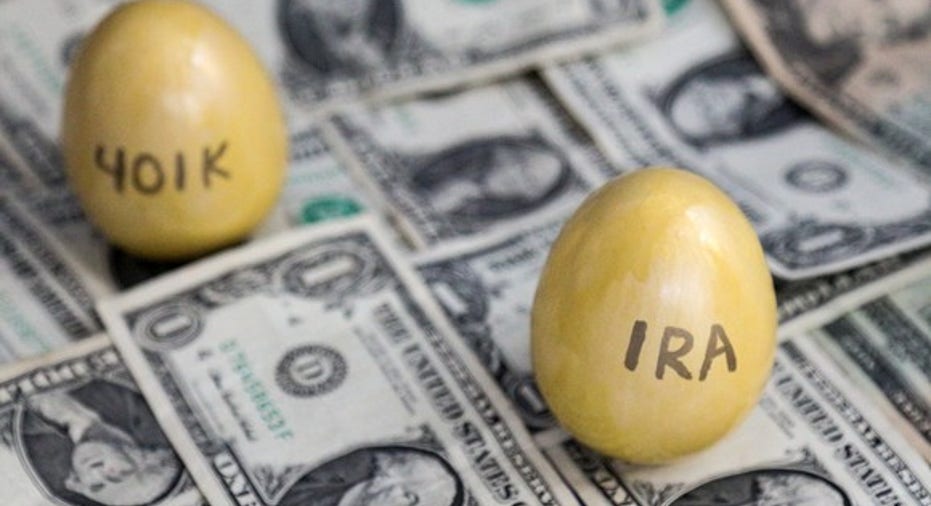3 Reasons Not to Rollover Your 401(k) Into an IRA

If you just left your job, you might have a big financial decision to make: what to do with that 401(k) account you diligently contributed to every payday. The most common financial advice on the subject is to roll over that 401(k) into an IRA in order to reduce fees and open up more investment options. But that might not be your best option.
A rollover could cost you in the long run due to higher taxes, a reduction in flexibility about when you take your distributions, and higher costs to access your money early if you really need it.
Here are three reasons you shouldn't roll over your 401(k) into an IRA.
Image source: Getty
Say goodbye to your backdoor Roth IRA contributions
For high income earners, the backdoor Roth IRA strategy can be a key part of retirement planning. If you're part of a married couple with a modified adjusted gross income over $194,000, or single with an AGI over $132,000, you cannot contribute directly to a Roth IRA.
You can, however, make non-deductible contributions to a traditional IRA, then convert the funds to a Roth IRA. There's no difference in taxation between directly contributing to a Roth and taking the back door.
There's one caveat though: You can't pick and choose which funds you're converting. If your IRA contains both pre-tax funds from a 401(k) rollover, and after-tax contributions from non-deductible IRA contributions, they all get lumped together under the IRS's aggregation rules.
So, if you roll over a $400,000 401(k) into an IRA, and then you try a backdoor Roth contribution with $5,500, you'll end up paying some hefty taxes. Just 1.4% ($5,500/$405,500)of your IRA funds will be after-tax contributions, meaning you'll owe taxes on the 98.6% of pre-tax contributions you'll be converting. On the full $5,500 conversion, that's $1,518 you'll have to pay in taxes if you're in the 28% tax bracket.
You can't withdraw early or postpone withdrawals until later
One benefit of 401(k) accounts is that they're a lot more flexible when it comes to distributions. You can start withdrawing funds penalty free as early as age 54 (if you have a late birthday). Per the IRS, you can start withdrawing funds from your 401(k) if you leave your job "during or after the calendar year in which the participant reached age 55."
So, if I left my job on Jan. 1 of the year I was going to turn 55, I'd be eligible to start tapping my 401(k) even though I wouldn't actually turn 55 until October.
It's important to note: If you leave your job earlier than the calendar year you turn 55, you won't be eligible to start withdrawing funds penalty free until you turn 59, the same age as for an IRA.
One better answer is to roll over your old 401(k) into your new employer's 401(k). Alternatively, if you have any self-employment income, you're eligible to open a self-employed 401(k), which you can roll your funds into. (That comes with the added bonus of providing more control over what investment options your plan offers.)
On the flip side, if you're still working past the age of 70, you can let your 401(k) keep growing. IRAs require you to start taking minimum distributions at that age.
You can't take out a loan against your IRA
A really nice feature of a 401(k) is the ability to take out a loan from the funds. Most 401(k) plans allow contributors to take out loans from their own contributions, and many also allow them to borrow from the employer contribution portion as well. While there are a lot of risks involved in doing that, a 401(k) loan can be one of the least costly borrowing options in many cases. Interest rates are generally just 1 to 2 percentage points above the prime rate.
You can't do that with an IRA. So if you roll over your old 401(k) into an IRA, you'll have one less option available when a unique opportunity comes along to invest in yourself, a small business, a new house, or whatever else.
The $16,122 Social Security bonus most retirees completely overlook If you're like most Americans, you're a few years (or more) behind on your retirement savings. But a handful of little-known "Social Security secrets" could help ensure a boost in your retirement income. For example: one easy trick could pay you as much as $16,122 more... each year! Once you learn how to maximize your Social Security benefits, we think you could retire confidently with the peace of mind we're all after.Simply click here to discover how to learn more about these strategies.
The Motley Fool has a disclosure policy.



















